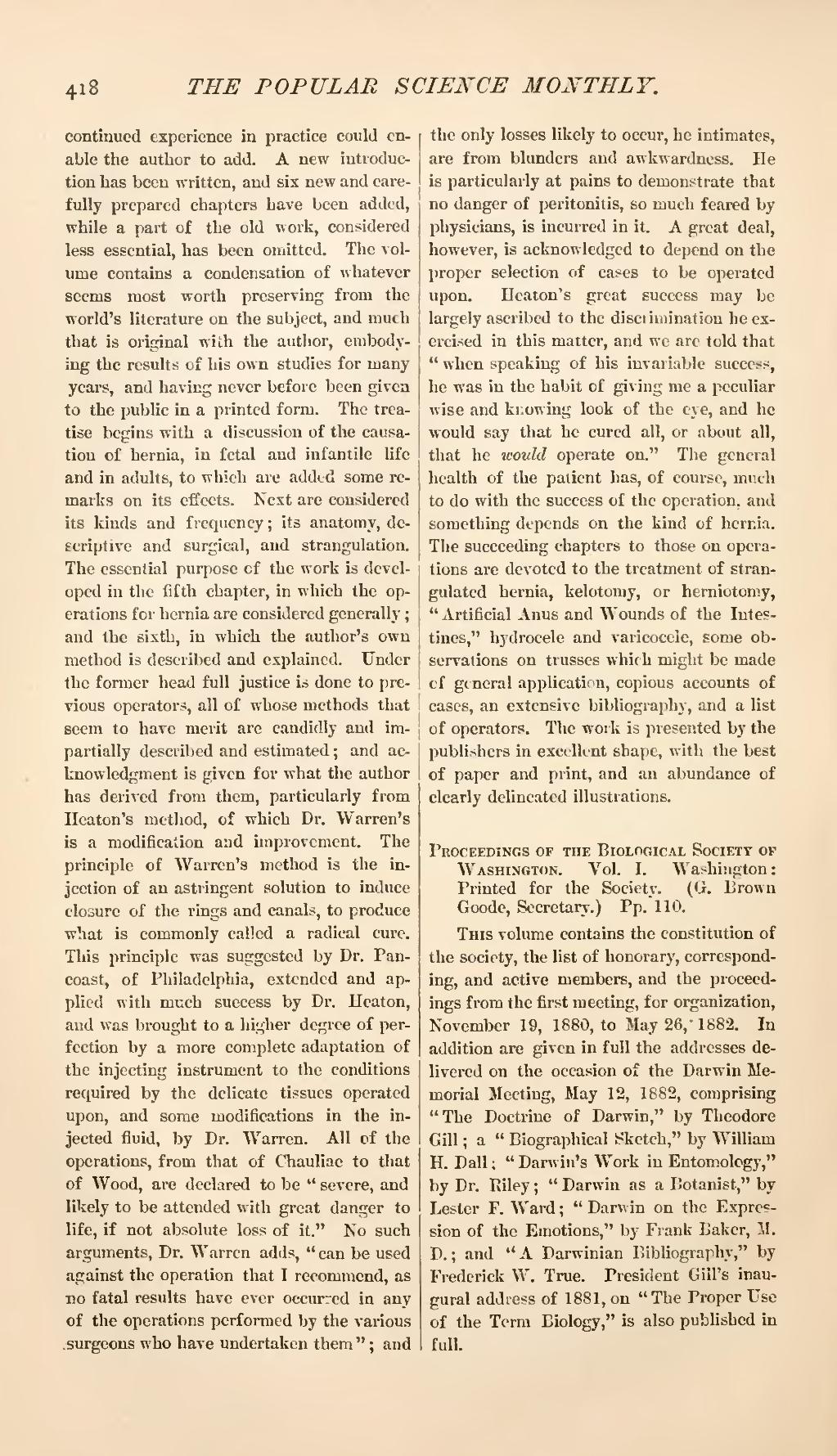continued experience in practice could enable the author to add. A new introduction has been written, and six new and carefully prepared chapters have been added, while a part of the old work, considered less essential, has been omitted. The volume contains a condensation of whatever seems most worth preserving from the world's literature on the subject, and much that is original with the author, embodying the results of his own studies for many years, and having never before been given to the public in a printed form. The treatise begins with a discussion of the causation of hernia, in fetal and infantile life and in adults, to which are added some remarks on its effects. Next are considered its kinds and frequency; its anatomy, descriptive and surgical, and strangulation. The essential purpose of the work is developed in the fifth chapter, in which the operations for hernia are considered generally; and the sixth, in which the author's own method is described and explained. Under the former head full justice is done to previous operators, all of whose methods that seem to have merit are candidly and impartially described and estimated; and acknowledgment is given for what the author has derived from them, particularly from Heaton's method, of which Dr. Warren's is a modification and improvement. The principle of Warren's method is the injection of an astringent solution to induce closure of the rings and canals, to produce what is commonly called a radical cure. This principle was suggested by Dr. Pancoast, of Philadelphia, extended and applied with much success by Dr. Heaton, and was brought to a higher degree of perfection by a more complete adaptation of the injecting instrument to the conditions required by the delicate tissues operated upon, and some modifications in the injected fluid, by Dr. Warren. All of the operations, from that of Chauliac to that of Wood, are declared to be "severe, and likely to be attended with great danger to life, if not absolute loss of it." No such arguments, Dr. Warren adds, "can be used against the operation that I recommend, as no fatal results have ever occurred in any of the operations performed by the various surgeons who have undertaken them"; and the only losses likely to occur, he intimates, are from blunders and awkwardness. He is particularly at pains to demonstrate that no danger of peritonitis, so much feared by physicians, is incurred in it. A great deal, however, is acknowledged to depend on the proper selection of cases to be operated upon. Heaton's great success may be largely ascribed to the discrimination he exercised in this matter, and we are told that "when speaking of his invariable success, he was in the habit of giving me a peculiar wise and knowing look of the eye, and he would say that he cured all, or about all, that he would operate on." The general health of the patient has, of course, much to do with the success of the operation, and something depends on the kind of hernia. The succeeding chapters to those on operations are devoted to the treatment of strangulated hernia, kelotomy, or herniotomy, "Artificial Anus and Wounds of the Intestines," hydrocele and varicocele, some observations on trusses which might be made of general application, copious accounts of cases, an extensive bibliography, and a list of operators. The work is presented by the publishers in excellent shape, with the best of paper and print, and an abundance of clearly delineated illustrations.
Proceedings of the Biological Society of Washington. Vol. I. Washington: Printed for the Society. (G. Brown Goode, Secretary.) Pp. 110.
This volume contains the constitution of the society, the list of honorary, corresponding, and active members, and the proceedings from the first meeting, for organization, November 19, 1880, to May 26, 1882. In addition are given in full the addresses delivered on the occasion of the Darwin Memorial Meeting, May 12, 1882, comprising "The Doctrine of Darwin," by Theodore Gill; a "Biographical Sketch," by William H. Dall; "Darwin's Work in Entomology," by Dr. Riley; "Darwin as a Botanist," by Lester F. Ward; "Darwin on the Expression of the Emotions," by Frank Baker, M. D.; and "A Darwinian Bibliography," by Frederick W. True. President Gill's inaugural address of 1881, on "The Proper Use of the Term Biology," is also published in full.

